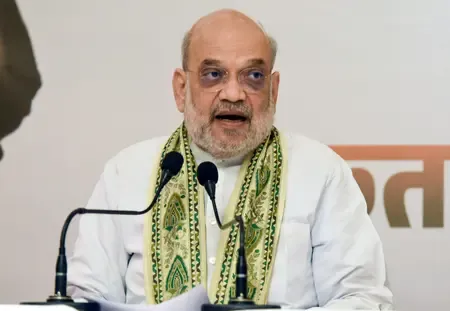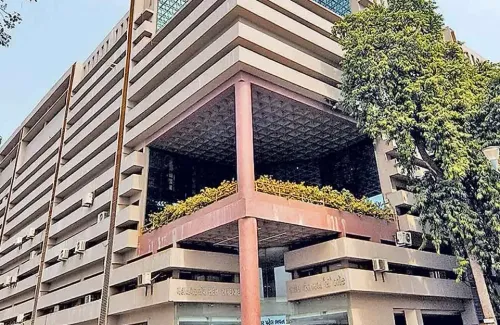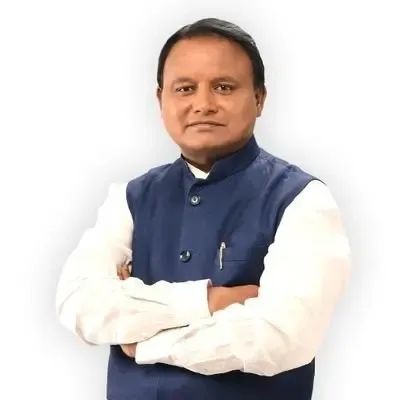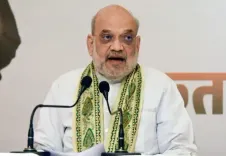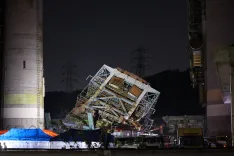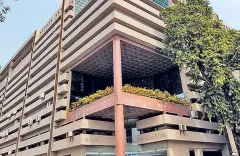PM Modi Prays at the Sacred Mukhimath Temple in Uttarkashi
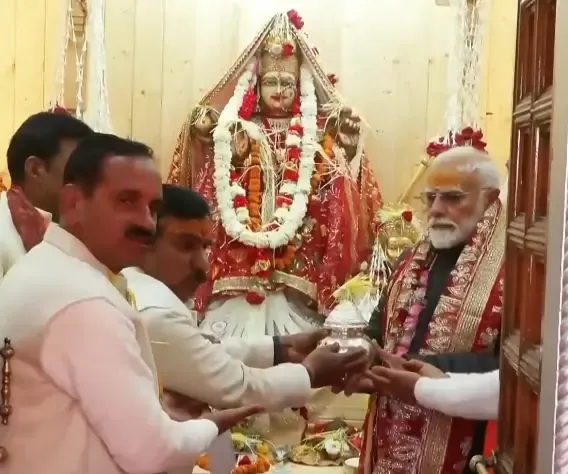
Synopsis
Key Takeaways
- PM Modi visited Mukhimath Temple, winter abode of River Ganga.
- The idol of Goddess Ganga is moved from Gangotri Temple during winter.
- His visit supports local businesses and promotes winter tourism.
- Ropeway projects approved to improve connectivity for pilgrims.
- Significance of the visit for Uttarkashi's cultural heritage.
Uttarkashi, March 6 (NationPress) Prime Minister Narendra Modi offered his prayers on Thursday at the Mukhimath Temple, regarded as the winter residence of River Ganga, situated in the village of Mukhwa in Uttarkashi district of Uttarakhand.
Upon reaching the temple, PM Modi performed rituals and sought blessings from Goddess Ganga. Many devotees gathered to welcome the Prime Minister.
During the winter season, on Diwali, the idol of Goddess Ganga from the renowned Gangotri Temple is transferred to the Mukhimath Temple in Mukhwa due to the closure of the Gangotri Temple caused by heavy snowfall and cold temperatures.
For six months, the idol is venerated at the Mukhimath Temple until the Gangotri Temple reopens for the summer. Once it reopens, the idol is ceremoniously returned to the Gangotri Temple in a grand celebration.
Upon his arrival at Jolly Grant Airport in Dehradun, the Prime Minister was greeted by Chief Minister Pushkar Singh Dhami.
CM Dhami took to X to express, "I warmly welcomed and greeted the Hon'ble Prime Minister Shri Narendra Modi ji at Mukhwa (Uttarkashi), the winter seat of Maa Ganga. His visit to the sacred land of Harshil-Mukhwa is a significant occasion."
He added, "The Honorable Prime Minister's visit is crucial for establishing Mukhimath (Mukhwa) on the global tourism map and enhancing the cultural and religious heritage of the state."
"We take pride in witnessing this historic moment in Mukhwa. On behalf of the state, we extend a heartfelt welcome to the illustrious Prime Minister during his winter visit to Devbhoomi Uttarakhand," the Chief Minister stated.
After his darshan at the Mukhimath Temple, PM Modi is scheduled to flag off a trek and bike rally, followed by addressing the crowd in Harsil Valley at around 10:35 am.
Earlier on Wednesday, PM Modi shared details of his visit on X, stating, "I am thrilled that the double engine government of Devbhoomi Uttarakhand has launched a special initiative to promote winter tourism this year. This not only enhances religious tourism but also provides local businesses, including homestays, with growth opportunities."
"I am eager to visit the winter sanctuary of Patit Pavani Maa Ganga in Mukhwa, a holy site renowned worldwide for its spiritual significance and stunning beauty. It exemplifies our commitment to 'Virasat bhi or Vikas bhi' (heritage as well as development)," he stated.
"We are dedicated to further boosting the state's economy by promoting tourism in Devbhoomi Uttarakhand. Tomorrow morning around 9:30 am, I will have the opportunity to worship Maa Ganga in Mukhwa, after which I will meet my family members in Harshil," he added.
This visit coincides with the Uttarakhand government's newly launched Winter Tourism programme, which has attracted thousands of devotees to the winter abodes of Gangotri, Yamunotri, Kedarnath, and Badrinath.
The initiative aims to promote religious tourism while also supporting local businesses, including homestays and tourism-related services.
On the day before his visit, the Cabinet Committee on Economic Affairs (CCEA), led by PM Modi, approved two significant ropeway projects in Uttarakhand.
One project entails a 12.9 km ropeway from Sonprayag to Kedarnath, with a total cost of Rs 4,081.28 crore under the Design, Build, Finance, Operate, and Transfer (DBFOT) model. Another ropeway, measuring 12.4 km from Govindghat to Hemkund Sahib Ji, has been approved at a cost of Rs 2,730.13 crore.
According to the CCEA, these ropeway projects will significantly improve last-mile connectivity for pilgrims and create numerous job opportunities during both construction and operational phases.
These projects are poised to play a vital role in the socio-economic development of the region, benefiting industries like hospitality, travel, food and beverages, and tourism.

